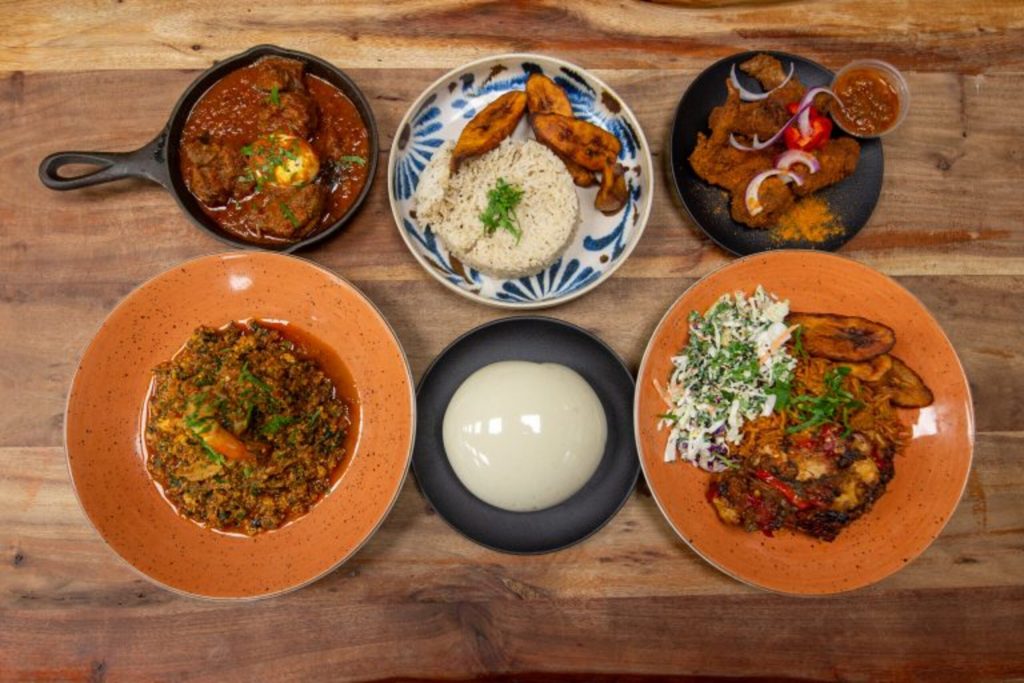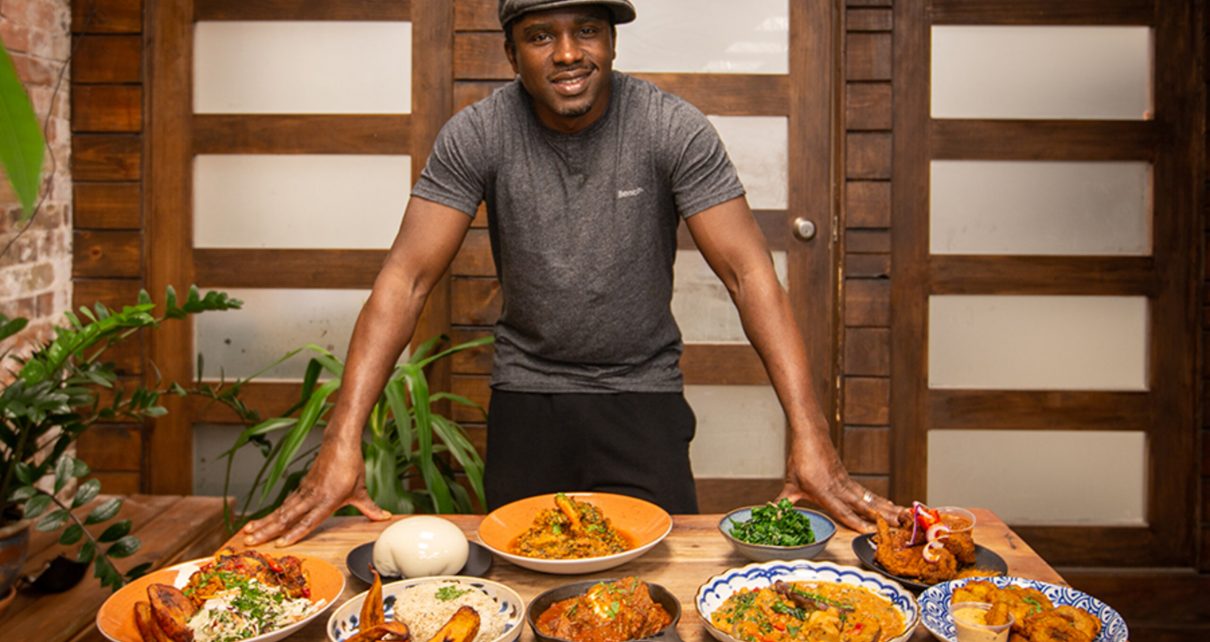Victor Ugwueke wants people in Toronto to try the food he grew up eating in Nigeria.
Working with food has always been a part of the Toronto chef’s life. He was six when he started washing dishes at his mom’s restaurant in Lagos, Nigeria. He opened up his own restaurant nearby in Victoria Island at 21. Fast forward 20 years later and Ugwueke has made his mark in popular Toronto spots like Tabule, Nota Bene and Enoteca Sociale.
But when he talked to peers about his favourite foods he was often met with blank stares.
“When you mention African food, people’s brains usually go straight to Ethiopian food,” he says. “I want people to have access to all other parts of Africa.”
That’s why he created his own restaurant, Afrobeat Kitchen in 2017. With a lively atmosphere and a soundtrack of Afrobeat artists like Tiwa Savage, Burna Boy and WizKid, he doles out flavourful dishes like suya hot wings, spicy and smoky jollof rice and egusi and greens with pounded yam.

It’s a contemporary Toronto version of Nigerian food, combining traditional recipes with locally sourced ingredients – lemongrass, green cardamom and star anise in the jollof, gochujang in miso mafe stew. He says the fermented flavour of the gochujang matches that of the fermented locust bean dawadawa.
“When I moved to Toronto. I saw some Nigerian restaurants from my people who were doing it already,” says Ugwueke. “But I think they were just focusing on the Nigerian community, so only Nigerian people [could] have access to it. I wanted to make sure people from all backgrounds can be exposed to our food. We can use food to build a friendship and have a good union.”
Ugwueke isn’t alone in his sentiment. Toronto is known for its rich and diverse foods, but it’s taken until recently for West African food to get its moment in the spotlight. The chefs and entrepreneurs involved in its rise have various theories about why. Racist stigmas, ingredient sourcing and lack of accessibility are just some of the barriers it faces. (NOW TORONTO)



